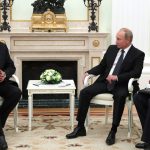THE WARSAW INSTITUTE REVIEW
Date: 10 June 2017 Author: Aleksandra Rybińska
False Moral Imperative
For every epoch there are images that can be considered symbolic.
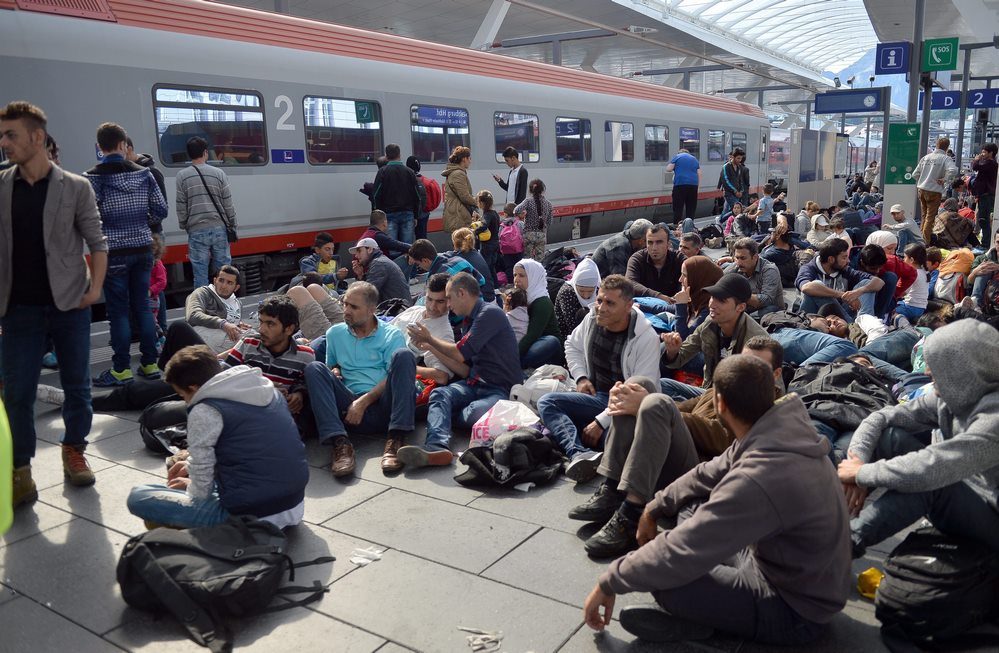
Images of Germans joyfully welcoming refugees in September 2015 at train stations have become a symbol of the inner condition of their society, which succumbed to the “vanity of good”. Nowhere else in Europe has the so-called “welcoming culture” adopted such a hysterical form. The Germans, delighted with themselves and their own goodness, equated politics with morality, and fell into a sense of exhilaration. It did not last long, but as the Bulgarian philosopher Ivan Krastev, president of the Centre for Liberal Strategies in Sofia, wrote in the Frankfurter Allgemeine Zeitung, a million refugees from Ukraine would not be able to trigger such a wave of solidarity and help in Germany, as did immigrants from Afghanistan, Syria, Iraq or northern Africa. Why? “Compassion can be shown towards Muslims, precisely because they are different from us. It allows us to demonstrate moral superiority. Look: these people are radically different from us but we help them anyway. Nothing else reinforces self-esteem to that extent,”[1] stressed Krastev.
Because it is impossible to help everyone living in poverty or under dictatorship, the Syrian refugee has become a symbol of the needy, absolving a society that drew lessons from the grimmest pages of its history. Anyone who carried even a bottle of water or clothes to the newcomers could consider themselves as part of the new, good Germany, which gave up it’s own national and thus selfish identity. The more foreign the refugee was, the more exotic, poor and persecuted, the greater was the willingness to set aside all rationality and take care of him . Nothing really cures one’s own guilt complex as effectively as “the other”. “We are so rich because they are poor” — this is the deep conviction of the followers of the “Willkommenskultur”. Consequently, anyone who ventured to criticize the open door policy was immediately proclaimed a racist, xenophobic, right-wing populist. In this readiness to help, a heavy dose of paternalism, disguised as anti-racism, served as an undercurrent. Germany, Europe’s most important political and economic force, took on a new role in the face of the immigration crisis: the chief moral authority.
Under pressure
Much has already been written about why Chancellor Angela Merkel decided to open the country’s borders. Some hints are provided by Robin Alexander, a journalist for Die Welt, in his book Die Getriebenen (Under Pressure).[2] According to Alexander, it was because neither the chancellor nor the Federal Minister of the Interior, Thomas de Maizière, wanted to take political responsibility for the closure of the borders and consequently the brutal repelling of the refugees by border guards. The author claims that the closure of the German borders was already de facto decided and that the corresponding order had been signed. Only was there a lack of political will to carry it out. Merkel was convinced that voters would not forgive her images showing the brutal treatment of immigrants. All the more so since an earlier video, in which Merkel explains to a young girl from Lebanon why she will have to go back home, was circulated by the German media.[3] Afterwards Merkel was named the “Ice Chancellor” by Der Spiegel. A loss of image was thus avoided, with serious consequences for Germany and Europe as a result.
The welcome party has long since ended, the “Welcome” posters in English and Arabic have disappeared from city streets, but most of the guests have remained and more are joining them, generating a variety of problems and costs. Many Germans, including those who had happily welcomed the new arrivals, are now dealing with a serious hangover and are questioning the Chancellor’s decision. To calm them, and to divert attention from Germany’s responsibility for the crisis and Berlin’s isolation on the refugee problem (Sweden and Denmark closed their borders), the relocation quota scheme was invented. The impression meant to be created was that, despite resistance, the remaining members of the EU accepted the unilateral decision of Germany to break the Dublin agreement, and showed solidarity with them. It’s no coincidence that the brains behind the relocation mechanism was German professor Dr. Martin Selmayr, the right-hand man of Jean-Claude Juncker, and the most influential civil servant of the European Commission (EC), a man known and valued in Berlin for his capacity for creative legal interpretation of EU treaties.[4] Selmayr, called the “bulldozer” by his critics, repeatedly stated that he will stop at nothing until Europe is “united and free”, which in his case means open and moving towards a bright future in a single, uniform line. In September, two years will have passed since the establishment of the migrant relocation system, which was supposed to be temporary and voluntary, and which has turned out to be compulsory and possibly permanent, as discussions on its extension are already underway. And it doesn’t matter that it does not work in practice, and that even countries such as France have accepted only a few hundred migrants. In Germany, the elections are approaching, so it is necessary to tighten the screws again to give German citizens the impression that their government is doing the right thing; hence, the disciplinary procedure initiated by the European Commission against Poland, Hungary and the Czech Republic.

Break up the Visegrad Group
We learned from an interview the President of the European Commission, Jean-Claude Juncker, gave to the German newspaper Süddeutsche Zeitung, that there is a “a primary mission of the EU.”[5] And this primary mission consists of , according to the head of the EC, accepting “people of different color or religion”. That is, the creation of a multicultural society, by force if necessary. But that’s not all. Juncker further suggested that in the face of the refusal of East-Central European countries to accept the so-called refugees from Africa and the Middle East, the admittance of these countries into the Union “was a mistake.” It was not the first time since the outbreak of the refugee crisis that such words were pronounced by a representative of the Brussels establishment. There have already been proposals of supervision, threats to freeze EU funds, tying funds to the acceptance of migrants and a number of other moves taken to at least elicit a sense of shame in the defiant governments. The launch of discipline procedures is another element of the strategy, based on the belief that “if the pressure is strong enough, they will finally get in line.” And if only one bends, then the others will be forced to follow. This is why Poland, the Czech Republic and Hungary, and not Slovakia or Austria, who also rejected the relocation mechanizm, found themselves in the dock. It’s an ideal opportunity to break up the Visegrad Group. This also echoes the belief that the Pole, the Czech or the Hungarian, who wants to be recognized as a full-fledged European, must uncritically follow a set of appropriate views on the role of their country in Europe. His European duty involves kowtowing to all the ideas of the most equal among equal EU countries, namely Germany and (sometimes) France, and to show feelings of embarrassment when some politician says something about national interests or security.
It’s just that Poland cannot be formally penalized for failing to respect the outcome of the EU summit in Brussels in September 2015. At that summit, there was no talk at all about, and no penalties delineated for, those countries that refused to accept the mainly Muslim immigrants. There is not a word on this subject in the conclusions of the summit. Any attempt at sanctions against Poland would therefore face a challenge from the Polish government in the European Court of Justice. The Commission’s actions should therefore be regarded as political pressure, primarily dictated by the German election calendar. The head of the German government has drawn lessons from Brexit and at all costs wants to show that this time they have the situation under control and will “handle“ the problem of immigrants, pushing them, even forcibly, into countries that have not and do not want them, like Poland. The government in Warsaw is guided in this by the will of its own citizens. According to a poll conducted by the CBOS public opinion polling institute, conducted in April 2017, as many as 74% of Poles oppose the acceptance of refugees from the Middle East and Africa. Poles are decidedly more inclined towards accepting refugees from eastern Ukraine. More than half (55%) of respondents were in favor of giving them refuge.[6] Poland has already accepted — according to various estimates — from 800,000 up to 1.2 million immigrants from Ukraine. The European Commission and our Western European partners do not seem to notice that. This shows that Ivan Krastev, mentioned earlier, was right in saying that solidarity with Ukrainians, suffering in their country due to war and poverty, will never be able to match solidarity with those who differ from us culturally. Multiculturalism and enlightened humanism, the new religion that Western Europeans adopted after turning away from God, is a moral imperative to which there can be no exceptions.
A Matter of Security
Some argue that after all, Poland could accept 7,000 immigrants from camps in Italy and Greece, as agreed to by the previous government of Ewa Kopacz, and that polish citizens would not even feel it. Except that this isn’t the point, it’s about principle. A given country and not the European Union should decide who it wants to accept onto its territory. It’s an issue of internal security, especially since neither the Italians nor the Greeks are able to cope with identifying the immigrants, more than a third of whom have ditched their passports on their way to Europe, or use fake documents. In 2015, Interpol recorded 250,000 lost or stolen Syrian and Iraqi passports.[7] Among the Islamic terrorists who attacked the Bataclan concert hall on November 13, 2015 in Paris, two used stolen Syrian passports and arrived in the refugee wave via the Balkan route to Europe. This was the same way the Tunisian refugee Anis Amri, who carried out the truck attack at the Christmas market in Berlin, arrived in Europe. Entire criminal networks in Turkey now produce fake Syrian passports, because Syrians still have the best chance for asylum on the old continent. In June 2016, the Federal Criminal Police Office (BKA) admitted that 80% of immigrants arriving in Germany did not have any identification documents, which made it difficult to identify them and dragged out asylum procedures to such an extent that they were practically at a standstill.[8] Recently, the German media has reported that a Bundeswehr (German army) soldier, an indigenous German and a Ukrainian family, managed to receive asylum as Syrian refugees. It is difficult to imagine a more absurd situation, and there may have been more such cases, perhaps even thousands. And the British watched with amazement on television the arrival of 350 “Syrian refugee minors” coming from camps in the south of Europe to the island, where it was plain to see that they were over thirty or even forty years old. At first, the British Home Office attempted to explain that the war had “aged” them, but later admitted that two-thirds were adults. Dental verification of their age was deemed “unethical”.[9]
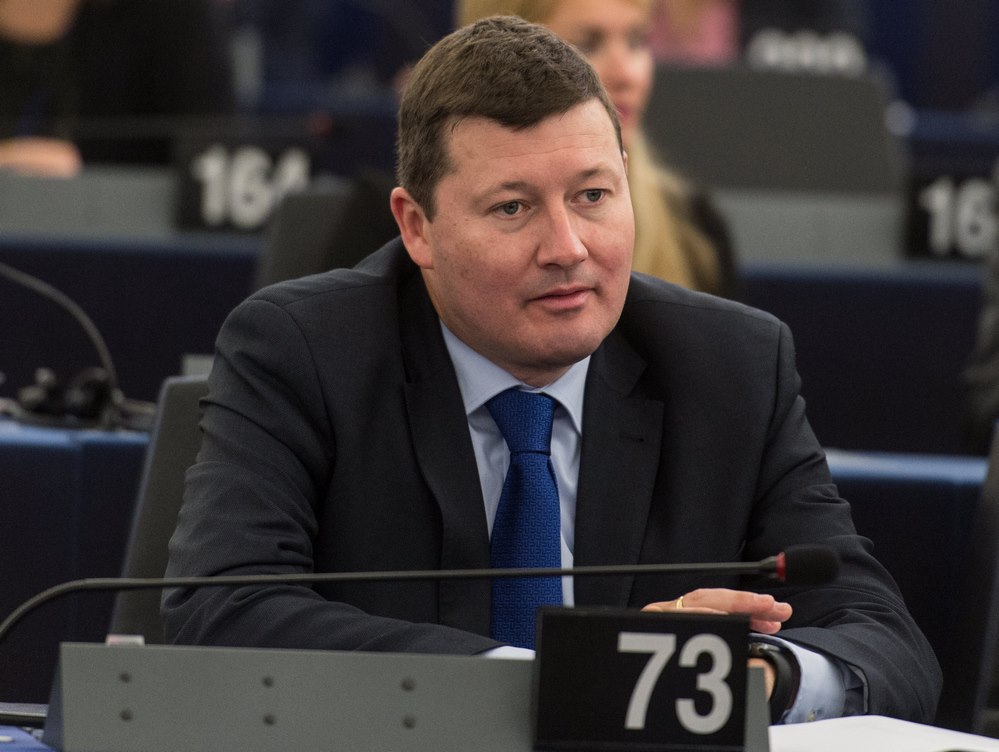
Israeli security expert, Martin van Creveld and German critic of islam, Bassam Tibi, have developed a report on the threat of terrorism stemming from the unrestricted flow of immigration titled “Countering Modern Terrorism”.[10] They identified the dangers of so-called “undesirable immigrants” (Islamists, immigrants who reject the culture and laws of the host):
- Using the country of residence and its society to carry out actions against the home country (“home regimes”). Islamists persecuted in their own countries are fighting, for example, from Germany, to establish a state based on sharia law in their homelands, creating the necessary logistics network. In their asylum applications , many Afghan immigrants in Germany claim they fled their homeland because they belong to the Taliban.
- The rejection of Western values and the law in force in the country that accepted them. Islamists use asylum rights in Europe while at the same time despising Europeans as “non-believers”.
- Threatening the cultural identity of the host country. Muslims often present an attitude of entitlement, demanding more and more concessions to their faith, such as clothing, religious holidays or halal meat.
- Generate high economic and social costs. Many immigrants come to Europe only because of generous social systems and do not intend to work. They often commit common crimes. In 2016, in Germany, refugees committed 174,438 crimes, ranging from petty theft to rape.
No Deportations
So it’s hard to believe the assurances of the Commission that refugees who would be relocated to Poland would be 100% vetted. All the more so because both the Italians and the Greeks – and it’s hard to fault them for it -, are trying to get rid of the most problematic individuals. The argument that current immigration does not have much in common with the attacks that swept Europe in the last three years, because the attacks are often carried out by radicalized, third-generation immigrants, does not justify bringing in any high-risk group. All the more sincethe BKA in Germany announced that since 2011, the terrorist potential among refugees there has quadrupled. They counted one thousand people among the new arrivals, capable and ready to carry out attacks.[11] This is also not about symbolic “solidarity,” because today’s symbolic action (“let’s take even one hundred”) can turn into a mass program tomorrow. Let us recall: the relocation mechanism did not gain the support of all EU member states, which is contrary to the unanimity rule of the European Council. Despite this, it was voted down. If Poland would succumb to the pressure of its Western partners, it would give them a tool to demand further concessions. First we accept 7,000, and then we will have to accept more, and so on. The immigration crisis that Europe has been wrestling with since 2014 has not been resolved, and it does not look like it will be anytime soon. Although the wave of immigrants heading to Europe in search of a better life today is somewhat smaller than in the disastrous year 2015, when — according to Frontex (the EU border protection agency) — there were 1.8 million illegal border crossings into the Union, there isn’t much evidence to speak for the disappearance of this phenomenon. The German Federal Minister of Economic Cooperation and Development, Gerd Müller, has recently raised alarm that in the coming years we should count on the possibility of as many as 100 million immigrants arriving in Europe from Africa. Europe, with just over 500 million inhabitants, even with a great dose of good will, would not be able to absorb all of them.[12]
At the same time, the Italians, Greeks, Germans, French and Swedes are unable to deal with deportations of illegal immigrants, who have no chance for asylum, back to their countries of origin. In 2016, the Italians only deported 3,670 people. All destination countries in the EU have been talking about increasing deportations since 2016. However, in reality they are not doing so, as the German daily Die Welt reports, citing a study by the European Stability Initiative (ESI), Germany deported only 7,451 immigrants last year. According to the think tank, “the great deportation offensive is an illusion”.[13] Of 14,000 Nigerians who sought asylum in Germany last year, only 120 have been sent back to their homeland.
Benefitting smugglers
The relocation system, in line with quotas tied to the efforts of refugee rights organizations like “No Borders” and the lack of deportations, serves as an incentive for immigrants to come to Europe. In this way the European Union plays into the hands of smugglers who have already earned billions from the refugee crisis. Marc Micallef of the Global Initiative think tank, called what is happening now, the “the human conveyor belt” stretching from Libya and Turkey into the depths of the African continent and the Middle East. This business is so profitable that it allows for numerous Libyan warlords to live in abundance, deepening instability in this fallen state, where the Islamic State is gaining more and more influence.[14] In this way, the European Union also pays for the mistake of removing Muammar Gaddafi. According to Micallef, ISIS fighters, smugglers and the Libyan coastguard all collaborate in this. The occasion is also used for the trafficking of women and children, some people are murdered for their organs, and women are raped on their way to the European El Dorado.
According to Frontex, in the first quarter of this year, most immigrants came to Europe from Nigeria, followed by Bangladesh, and Guinea ranked third. Syria is only fourth.[15] From 80 to 100 immigrants reach the coast of Greece daily and 40% come from West Africa. Frontex boss Fabio Leggieri says they are not the poorest of the poor, because they “can afford to pay smugglers.” These are the victims of the phenomenon Ivan Krastev calls “the dictatorship of global comparison.”[16] They are not so poor that they have to leave their country, but they want what is in the West. In the first quarter of this year, as many as 80,000 people arrived in Italy. They crossed the Mediterranean by boat, often with the help of NGOs, who bear the banner of creating an open and borderless world.
Organizations like Sea-Watch and Mission Lifeline are picking up immigrants just off the coast of Libya and transporting them to Italy; and often with the help of Frontex, whose task is supposed to be protecting Europe’s borders. The government in Rome informed the EC at the end of June that regarding the never-ending flow of immigrants, Italy is considering the possibility of closing its ports to foreign ships carrying migrants rescued at sea, and also the confiscation of ships of non-governmental organizations. Theauthorities in Rome no longer accept the current rules for rescuing immigrants on boats and pontoons, according to which ships sailing under different flags participate in patrolling the Mediterranean and take immigrants on board, then bring them exclusively to Italian ports. According to interior minister Marco Minniti, foreign vessels should also take immigrants to other European ports, such as those in France or Malta, as Italy is “overloaded” and there is no room left in asylum centers. However, these countries have not agreed on this.[17] A better solution, according to experts, would be closing the borders, i.e. sealing off the Mediterranean route, just as the Balkan route was sealed off and the establishment of asylum centers (hot spots) in the countries from which immigrants travel to Europe, as well as the return of boats to Libya; but as of yet, the decision to implement this idea hasn’t been made.
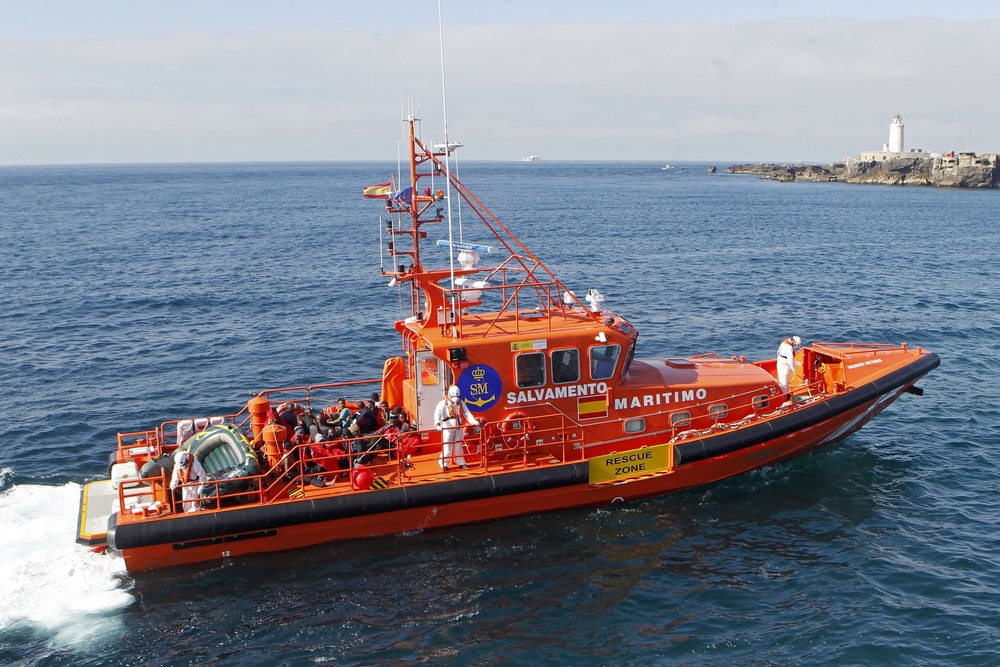
The Xenophobic West
For now, immigrants are being admitted to Europe in unlimited numbers. Only a fraction receive asylum, yet, at the same time, only few are deported. The inflow to Greece has been considerably reduced by the agreement the European Union concluded last year with Turkey, but this is a precarious solution, as it depends on the whims of Turkish President Recep Tayyip Erdogan. Europe is at his mercy, and at least 3 million refugees, who escaped the war in Syria and Iraq, are camped out in Turkey. Many of them had originally planned to travel on to Germany, France or Sweden. As Erdogan said in his meeting with Juncker and European Council President Donald Tusk in February 2016, he can “load them onto buses and bring them to the border with Bulgaria” at any time, if his demands for EU financial aid are not met.[18] Absent the wisdom of the Balkan-route countries like Hungary, who decided not only to close their borders but to build barriers on them, the 1.8 million refugees of 2015 would not have been the end of it. In gratitude, some European politicians have described Hungarian Prime Minister Viktor Orban as a “fascist”. Currently, the rhetoric of the Union remains essentially the same. The countries of Central and Eastern Europe, scornfully called the “Euro-poor” on this occasion in one of the articles in Deutsche Welle, are expected to accept immigrants, against their will and against the will of the immigrants themselves. Otherwise, they are accused of xenophobia. Meanwhile, as polls show, it is not the Poles who most critically view the EU’s open door policy, but the Greeks and Italians. Islamic extremism is feared by 67% of Poles, but by as much as 82% of Germans and 87% of Italians. Among Belgians, 64% believe that the influx of Muslim immigrants should be halted, as do 61% of the French and 65% of Austrians.[19] And, it is not xenophobia that allegedly causes immigrants to refuse to settle in Poland, but the fact that thanks to smugglers, they are well aware of the countries in which the social system is most beneficial to them. Their targets are Germany, Great Britain, Sweden and France. They are very determined, as their continuous attempts to get through Calais from the English Channel to the British Isles show. Neither fences, nor high voltage power lines above trains, nor penalties for blocking roads, are able to dissuade them. HowPoland could possibly force them to remain on its territory, is a question to which EU elites have no answer, and it is easy to predict that they would soon escape to neighboring Germany, as was the case with Syrian Christians, brought to Poland by The Estera Foundation in the summer of 2015.[20] In fact, after escaping to Germany, the Syrians attempted to persuade the Polish authorities to withdraw their earlier refugee status, “because for this reason they were not entitled to German family benefits.” In their letters to the government they even claimed that they wereforced to apply for asylum in Poland, although “they did not at all feel like refugees”. We’re talking about 50 families in this case. And the EU wants us to accept 7,000, most of whom probably do not want to live in Poland either. Should they also escape to Germany, will they too write applications asking to withdraw their refugee status?
Social crisis instead of economic miracle
And even if they stay in Poland, it’s about more than keeping them in asylum centers. They will need language courses, jobs, education, housing, in short: integration. And the Poles have already seen how Germany, a much richer and far more experienced country than ours, handled this issue. For the dominant left-liberal elite beyond the Oder river, cultural differences are simple ornaments diversifying aesthetic experiences. For refugees from Muslim countries, however, they are essential and define their identity. The newcomers brought their conflicts and divisions with them to Germany, between Sunnis and Shiites, Muslims and Christians, and an attitude toward women typical to Islam. In the refugee camps in Germany, fights regularly explode, children are raped, volunteers are sexually abused by their wards, and Christians are victims of aggression on the part of Muslims, and to such a degree that the German government considered opening separate centers for Christians and women with children.[21] Ultimately, they decided against this so as not to create the impression that Muslims were intolerant. The hopes for professionally skilled and highly educated refugees from Syria, Iraq and Afghanistan, also failed to materialize. Their real level of education, as German economist Hans-Werner Sinn points out, corresponds to “functional illiterates”.[22] They are unable to understand written text and to solve simple mathematical problems.
According to German education expert Ludger Wößmann, 65% of Syrian children who came with the last immigration wave to Germany, have knowledge and skills far below the minimum required by the Organization for Security and Co-operation in Europe (OSCE). Even if they learned German, “they would not be able to absorb what they are taught in their lessons.” Rather than solve Germany’s demographic problem and cause an economic miracle, as hoped by the authorities in Berlin, entrepreneurs, who lack skilled manpower and other proponents of “Wilkommenskultur”, could face a serious social crisis caused by the massive influx of immigrants. Most newcomers do not want to educate themselves. Many quit apprenticeship programs after a maximum of six months[23] and appear to prefer to even do the lowest paid work, just to earn something. Many have to pay back debts they incurred to smugglers and send money home to their families. Others, as the Süddeutsche Zeitung notes, simply do not understand the benefits of having an education. As Ilse Aigner, Bavarian Minister of Economic Affairs, said, “only one in ten refugees is actually fit for work.” Germany spent 22 billion euros on refugees in 2016, of which 1.4 billion was for integration and 1.7 billion for the payment of benefits. Federal Minister of Finance Wolfgang Schäuble has planned similar expenses for the current year.[24] If the integration of immigrants, especially in the labor market, does not succeed however, it may cost Germany the considerable sum of 400 billion euros over the next 20 years — as concluded by the Center for Economic Research in Mannheim (ZEW) on behalf of the Heinrich Böll Foundation.[25] Then, social transfers, like family benefits, will far outweigh the taxes and other fees paid by immigrants. This is all the more so because German law permits so-called “family reunification”. German municipalities already pay a huge sum for asylum centers, most of which are managed by private entities. Some municipalities pay up to 20,000 euros per month for food and accommodation for one refugee.
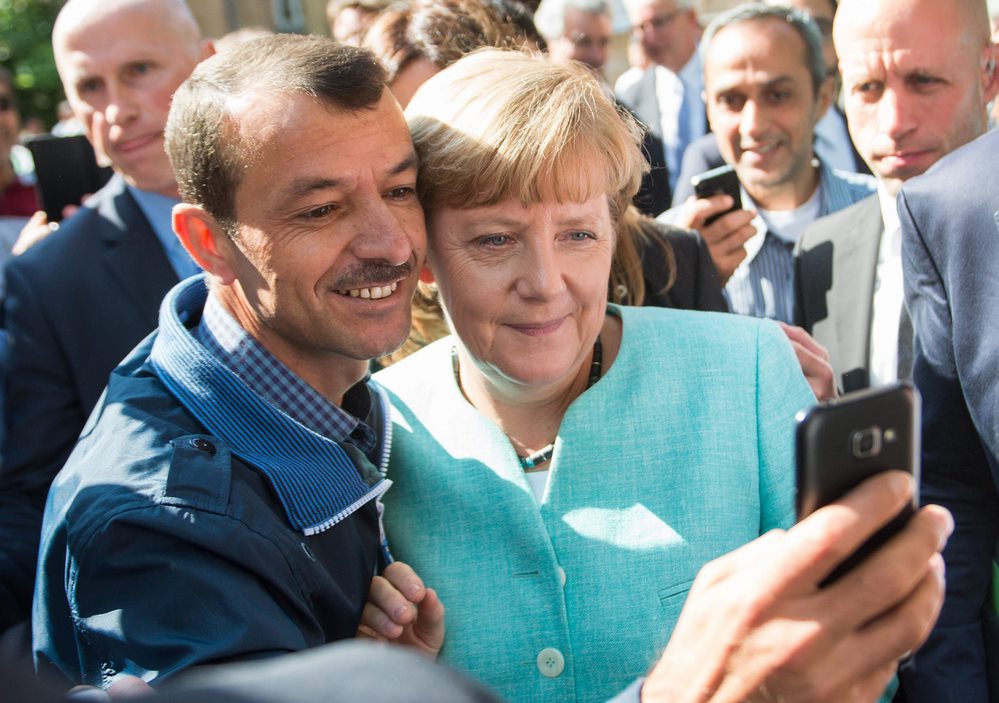
On-site Help
That is why Poland, already at the beginning of the migration crisis, stressed that it was necessary to help refugees on the spot, because it is less expensive, so you can help a lot more people, and in addition, those who really need help. Poland has long been involved in on-site assistance, including the reconstruction of hospitals, financing the purchase of prostheses for children and the reconstruction of homes for those who lost them as a result of the war in Syria. The value of Polish humanitarian aid to the Middle East has increased almost fourfold — from 12.8 million PLN in 2015 to about 46 million PLN in 2016. Poland’s response to the humanitarian and migration crisis also includes participation in special EU funds, such as the EU Regional Trust Fund (MADAD) and the EU Facility for Refugees in Turkey, and support through specialized humanitarian agencies appropriately prepared for work in war zones. The total amount of Poland’s comprehensive assistance in response to the Syrian conflict and the migration crisis in 2016 amounted to over 119 million PLN. In July 2016, the government also adopted a “humanitarian aid package for the Middle East”. This year, it will assist refugees in countries neighboring Syria, run educational programs (with Germany) in Lebanon, and make their own contribution to non-governmental organizations, which will seek refugee assistance from the European Commission. Thanks to this, the Syrians and Iraqis will not have to come to Europe to beg, paying mafia organizations for transportation.
[1] Ivan Krastev, “Die Utopie vom Leben jenseits der Grenze”, Frankfurter Allgemeine Zeitung, March 1, 2016, http://www.faz.net/aktuell/politik/zerfaellt-europa/zerfaellt-europa-3-die-utopie- vom-leben-jenseits-der-grenze-14082761.html.
[2] “Grenzen der Kanzlerin”, Die Zeit, March 30, 2017, http://www.zeit.de/2017/14/angela-merkel-die-getriebenen-fluechtlingspolitik-robin-alexander.
[3] “Die Kanzlerin und das weinende Flüchtlingsmädchen”, Frankfurter Allgemeine Zeitung, July 16, 2015, http://www.faz.net/aktuell/politik/inland/merkel-video-kanzlerin-und-das-weinende-maedchen-13705652.html.
[4] “Monster at the Berlaymont”, Politico, November 22, 2016, http://www.politico.eu/article/monster-at-the-berlaymont-martin-selmayr-european-commission-jean-claude-juncker/.
[5] “EU-Kommissionspräsident Juncker ‘Wir müssen unseren Laden in Ordnung bringen’ “, Süddeutsche Zeitung, June 15, 2017, http://www.sueddeutsche.de/politik/interview-eu-kommissionspraesident-juncker-wir-muessen-unseren -laden-in-Ordnung-bringen-1.3546838. [6] CBOS: “74% Poles against the reception of refugees from the Middle East and Africa”, Rzeczpospolita, April 14, 2017, http://www.rp.pl/Kraj/170419416-CBOS-74-proc-Polakow-intervention-international-international-in-the-Western- and-Afryki.html.
[7] “EU’s passport fraud ‘epidemic’ “, Politico, January 28, 2016, http://www.politico.eu/article/europes-fake-forged-stolen-passport-epidemic-visa-free-travel-rights/.
[8] “80 Prozent der Flüchtlinge kommen ohne Pass nach Deutschland”, Augsburger Allgemeine, June 8, 2016, http://www.augsburger-allgemeine.de/politik/80-Prozent-der-Fluechtlinge-kommen-ohne-Pass-nach- Deutschland-id38036332.html.
[9] “Two thirds of disputed Calais ‘child refugees’ are adults, Home Office figures reveal”, The Independent, October 19, 2016, http://www.independent.co.uk/news/uk/home-news/child-refugees -migrants-two-thirds-home-office-dental-teeth-david Davies-a7369186.html.
[10] “Countering Ideological Terrorism”, Bassamn Tibi, Defense Against Terrorism Review, Cornell University, 2008, http://www.coedat.nato.int/publication/datr/volume1/06-Countering_Ideological_Terrorism.pdf.
[11] “Terror potential in Germany’s immigrant population quadruples, German feds say,” Fox News, May 25, 2017, http://www.foxnews.com/world/2017/05/25/terror-potential-in-germanys-immigrant- population-quadruples-german-feds-say.html.
[12] “Müller warnt vor 100 Millionen Flüchtlingen aus Africa”, Der Spiegel, June 18, 2017, http://www.spiegel.de/politik/ausland/gerd-mueller-warnt-vor-100-millionen-fluechtlingen-aus-afrika -a-1152670.html.
[13] “Europas großer Selbstbetrug in der Flüchtlingsfrage”, Die Welt, June 20, 2017, https://www.welt.de/politik/deutschland/article165720206/Europas-grosser-Selbstbetrug-in-der-Fluechtlingsfrage.html.
[14] “The human conveyor belt. Trends in human trafficking and smuggling in post-revolution Libya”, March 2017, http://globalinitiative.net/report-the-human-conveyor-belt-trends-in-human-trafficking-and-smuggling-in-post-revolution -libya/.
[15] “Frontex chief: Migrant influx shifting but no let-up”, Euractiv.com, June 13, 2017, https://www.euractiv.com/section/justice-home-affairs/news/frontex-chief-migrant-influx -shifting-but-no-let-up/.
[16] “Solidarity! Why?”, Ivan Krastev, Frankfurter Allgemeine Zeitung, March 1, 2016, http://www.faz.net/aktuell/politik/die-gegenwart/europe-solidarity-why-14085960.html.
[17] “Italy is considering the confiscation of ships of migrant rescue organizations”, tvn24.pl, June 30, 2017, http://www.tvn24.pl/knowledge-of-news2/wlochy-rozwazaja-konfiskate-statkow-organis-ratujacych-migrantsow,753352.html.
[18] “Turkey’s Erdogan threatens to flood Europe with migrants: Greek website”, Reuters, February 8, 2016, http://www.reuters.com/article/us-europe-migrants-eu-turkey-idUSKCN0VH1R0. [19] “What Do Europeans Think About Muslim Immigration?”, Chatham House, February 7, 2017, https://www.chathamhouse.org/expert/comment/what-do-europeans-think-about-muslim-immigration.
[20] “Porażka Miriam Shaded. Wszyscy uchodźcy, których sprowadziła do Polski Fundacja Estera wyjechali?”, Newsweek, March 29, 2017, http://www.newsweek.pl/swiat/polityka/miriam-shaded-uchodzcy-ktorych-sprowadzila-do-polski-estera-wyjechali-,artykuly,407851,1.html. [21] “Muslimische Flüchtlinge bedrohen Christen mit dem Tod”, Die Welt, September 8, 2016, https://www.welt.de/politik/deutschland/article157586994/Muslimische-Fluechtlinge-bedrohen-Christen-mit-dem-Tod.html.
[22] “Flüchtlinge verschärfen Probleme des alternden Sozialstaats”, Hans-Werner Sinn, fnp.de, March 18, 2016, http://www.hanswernersinn.de/de/Interview_FNP_18032016.
[23] “Ernüchternde Bilanz: Flüchtlinge sind für den deutschen Arbeitsmarkt unbrauchbar”, epochtimes.de, July 2, 2017, http://www.epochtimes.de/politik/deutschland/ernuechternde-bilanz-fluechtlinge-sind-fuer-den-deutschen-arbeitsmarkt-unbrauchbar-a2157031.html.
[24] “Flüchtlingskrise kostet Deutschland jährlich 22 Milliarden Euro”, Die Welt, January 27, 2017, https://www.welt.de/politik/deutschland/article161565378/Fluechtlingskrise-kostet-Deutschland-jaehrlich-22-Milliarden-Euro.html.
[25] “Flüchtlinge kosten bis zu 400 Milliarden Euro”, Die Zeit, April 27, 2016, http://www.zeit.de/wirtschaft/2016-04/fluechtlinge-arbeitsmarkt-integration-kosten-studie-zew.
All texts published by the Warsaw Institute Foundation may be disseminated on the condition that their origin is credited. Images may not be used without permission.


